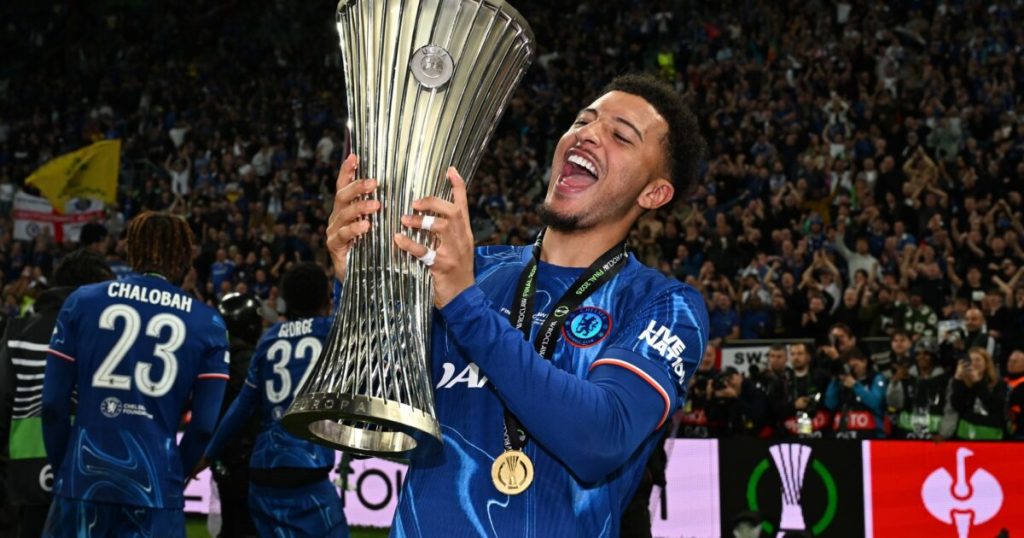Jadon Sancho’s return to Manchester United from Chelsea, punctuated by a £5 million penalty clause, marks a significant turning point in the young winger’s career. His departure from Stamford Bridge, though seemingly abrupt, underscores the complex and often unpredictable nature of player transfers in the modern football landscape. Sancho’s statement, expressing gratitude towards Chelsea and its supporters, suggests an amicable parting, despite the activation of a financial penalty. This seemingly contradictory situation begs further examination of the circumstances surrounding his move, the strategic considerations of both clubs involved, and the potential impact on Sancho’s future prospects. The financial aspect of the transfer, particularly the £5 million clause, raises questions about the initial agreement between Chelsea and Manchester United, the conditions that triggered the payment, and the implications for both clubs’ financial strategies.
Sancho’s brief but impactful spell at Chelsea, culminating in a goal during their UEFA Conference League triumph against Real Betis, adds another layer of complexity to the narrative. His contribution to the team’s success, despite the short duration of his stay, highlights his talent and potential. However, his departure so soon after achieving European glory raises questions about his role within the squad, his personal ambitions, and the strategic direction of Chelsea under its current management. The decision to let go of a player who had demonstrably contributed to a major title win suggests a deeper underlying rationale, possibly related to long-term squad planning, financial constraints, or even differences in playing style or team dynamics. Understanding the motivations behind this move is crucial to fully grasping the significance of Sancho’s return to Old Trafford.
Manchester United’s reacquisition of Sancho, following his earlier departure, signals a renewed faith in the player’s abilities and a potential shift in the club’s strategic approach. The willingness to pay the penalty clause indicates a commitment to securing his services, suggesting that Sancho holds a specific value within the team’s plans. This could be related to his versatility on the wing, his potential for growth and development, or a perceived need to bolster the squad’s attacking options. The circumstances surrounding Sancho’s initial departure from Manchester United also warrant examination, as they provide context for his return and the club’s renewed investment in his potential.
The dynamic interplay between player ambition, club strategy, and financial considerations forms the backdrop of this transfer saga. Sancho’s personal aspirations, his desire for regular playing time, and his long-term career goals likely played a significant role in his decision-making process. The contrasting approaches of Chelsea and Manchester United, in terms of squad building, playing style, and financial resources, further complicate the picture. The £5 million penalty clause serves as a stark reminder of the contractual intricacies and financial implications that underpin player transfers, highlighting the often delicate balance between sporting ambition and economic realities.
Sancho’s journey from Manchester United to Chelsea and back again represents a microcosm of the broader trends shaping the modern football transfer market. The increasing frequency of player movements, the complex web of contractual obligations, and the ever-growing influence of financial considerations are all reflected in this particular case. The rapid pace of change within the footballing landscape necessitates a deeper understanding of the factors that drive player transfers, the strategic calculations of clubs, and the impact on individual players’ careers. Sancho’s experience serves as a compelling case study for analyzing the intricacies of the modern game.
Looking ahead, Sancho’s return to Manchester United presents both opportunities and challenges. He faces the task of reintegrating into a familiar yet evolved environment, earning the trust of the coaching staff, and competing for a place in a competitive squad. The pressure to perform will be high, given the financial investment involved and the expectation that he will fulfill his potential. His success or failure at Old Trafford will depend on a multitude of factors, including his ability to adapt to the team’s playing style, his relationship with the manager and teammates, and his own personal drive and determination. The coming seasons will reveal whether Sancho can capitalize on this second chance at Manchester United and establish himself as a key player for the club.


